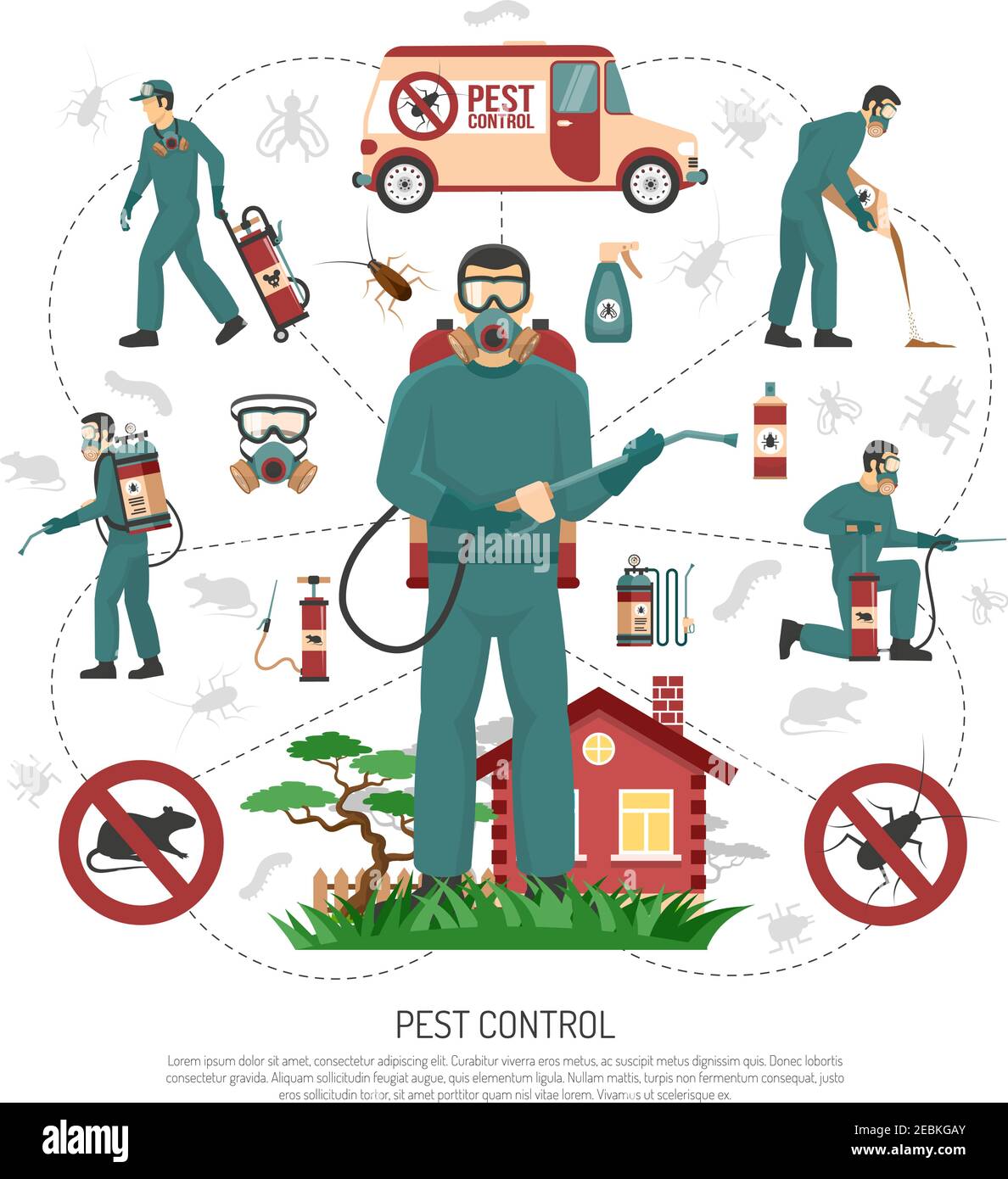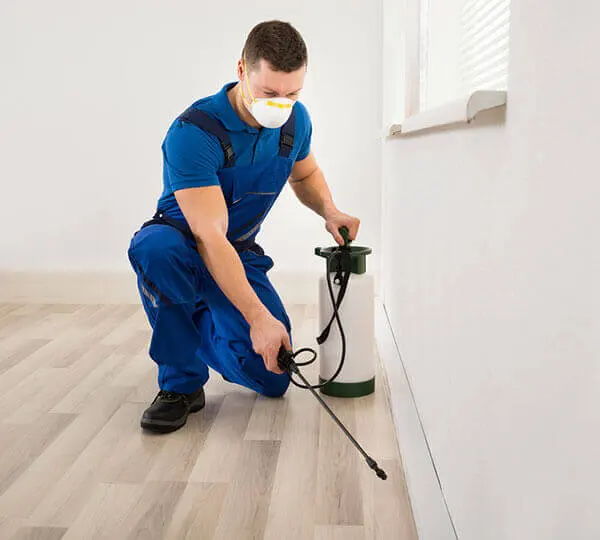Pest Control Clovis: Remove Vermin Finally
Wiki Article
Recognizing the Various Strategies to Pest Control: A Comprehensive Overview

Natural Pest Control Methods
Employing environment-friendly strategies such as friend planting and biological bug control is crucial for successfully managing pests in farming settings. Companion planting entails expanding various crops in proximity to deter parasites, enhance nutrient uptake, and boost total plant health and wellness. Planting marigolds together with tomatoes can help repel nematodes. In a similar way, intercropping maize with vegetables can interrupt the breeding patterns of parasites like corn borers.Biological bug control includes presenting natural predators or pathogens to manage pest populaces. Ladybugs, for example, prey on aphids, managing their numbers without the need for chemical pesticides. An additional example is making use of Bacillus thuringiensis (Bt), a bacterium that targets certain insect pests while being harmless to human beings, animals, and advantageous bugs.
These environment-friendly approaches not only lower the reliance on artificial chemicals yet also aid preserve biodiversity and soil wellness. By incorporating natural bug control strategies into farming techniques, farmers can achieve sustainable bug monitoring while reducing unfavorable influence on the environment.

Chemical Bug Control Solutions
In enhancement to natural pest control techniques, the use of chemical parasite control options plays a substantial duty in efficiently handling pest populations in agricultural atmospheres. Chemical bug control options are created to target certain bugs that might create considerable damages to plants. These remedies usually contain artificial chemicals that are made to eradicate pests quickly and efficiently.Among the vital benefits of chemical bug control options is their effectiveness in managing parasite infestations on a huge scale. Farmers can use these options utilizing numerous techniques such as splashing, fumigation, or seed treatment to protect their plants from unsafe pests, weeds, and illness. Additionally, chemical pest control remedies are reasonably very easy to use and can offer rapid outcomes, assisting farmers protect their returns and lessen economic losses.
Nevertheless, it is vital to use chemical bug control solutions deliberately to reduce possible negative influences on the environment, non-target organisms, and human wellness. Proper application strategies, adherence to safety standards, and normal tracking are critical to make sure the liable use of chemical parasite control services in farming techniques.
Biological Bug Control Approaches
Organic insect control comes close to leverage natural killers or virus to handle parasite populations in agricultural setups effectively. This method offers a environment-friendly and sustainable option to pest monitoring, decreasing the reliance on artificial chemicals and decreasing harm to the environment. One common biological control technique is the introduction of natural opponents, such as ladybugs or parasitical wasps, to target details pests. These predators feed upon the insects, assisting to manage their populaces normally - pest control clovis.One more biological control method involves using virus like infections, fungis, or germs to infect and kill insects. These microbial agents can be sprayed on crops or presented right into the dirt to deal with different pests without damaging helpful insects or various other wild animals. Furthermore, using pheromones to interfere with the breeding patterns of insects is another effective Extra resources biological control approach. By conflicting with their reproduction, this approach assists to decrease parasite populaces without the need for chemical treatment. In general, biological parasite control methods offer a lasting and targeted service to pest monitoring in farming.
Integrated Pest Administration (IPM)
Integrated Pest Administration (IPM) is a thorough method that combines numerous pest control techniques to properly manage and reduce pest populaces in farming systems. IPM concentrates on long-lasting prevention of bugs via a combination of biological, cultural, physical, and chemical control techniques. By incorporating these various approaches, IPM aims to minimize dependence on chemical pesticides, decrease ecological influence, and advertise lasting parasite management practices.
One secret element of IPM is using organic controls such as all-natural killers, bloodsuckers, and virus to regulate pest populations. here are the findings This method utilizes the power of nature to preserve a balance between pests and their natural enemies without causing harm to the environment.
Additionally, IPM involves cultural practices like crop hygiene, environment, and turning manipulation to create unfavorable problems for parasites and interrupt their life cycles. Physical controls such as obstacles, composts, and traps are additionally made use of to avoid parasite invasions.
Mechanical and Physical Pest Control Methods
Making use of non-chemical techniques, such as mechanical and physical pest control methods, is an important facet of extensive pest monitoring methods, building on the foundation of Integrated Bug Administration's holistic method. Mechanical pest control entails the use of physical barriers or catches to avoid parasites from accessing and damaging plants or structures. This method can consist of techniques like mounting screens on home windows, utilizing row recommended you read covers in agriculture, or utilizing sticky catches to catch pests.Physical insect control approaches, on the other hand, concentrate on straight getting rid of parasites with physical methods. For example, making use of heat therapies to eradicate bed insects or vacuuming up parasites like ants or crawlers can be effective methods to manage invasions without the usage of chemicals. By integrating these mechanical and physical insect control strategies right into an Integrated Parasite Management plan, professionals and individuals can lower dependence on pesticides while still successfully managing pest populations and decreasing damages.
Verdict

In addition to all-natural insect control methods, the use of chemical pest control solutions plays a substantial function in properly handling pest populaces in agricultural settings.One of the essential benefits of chemical insect control remedies is their efficiency in regulating insect problems on a big scale.Integrated Insect Administration (IPM) is a thorough approach that integrates numerous insect control strategies to successfully take care of and reduce pest populaces in agricultural systems.Using non-chemical approaches, such as mechanical and physical bug control techniques, is a vital aspect of extensive bug management techniques, building upon the foundation of Integrated Bug Monitoring's holistic method. By integrating these physical and mechanical parasite control techniques into an Integrated Bug Monitoring strategy, professionals and individuals can lower reliance on pesticides while still efficiently decreasing and managing pest populations damage.
Report this wiki page